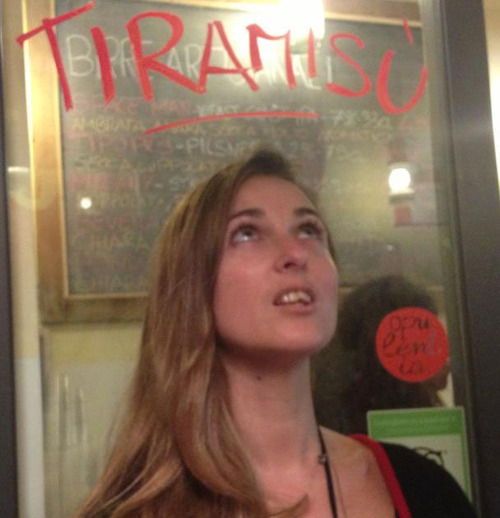
I first met Chiara Barzini at an East Village bar called Scratcher in New York last year. We were both reading at the NOON launch party at the Center for Fiction. Our mutual friend Giancarlo DiTrapano, editor of Tyrant Books and New York Tyrant magazine, introduced us, and I right away found Chiara brilliant and engaging. We shared a fondness for Diane Williams and NOON. She has worked as a correspondent for Rolling Stone Italy, Italian Vanity Fair, GQ, Flair, and Marie Claire. As an actress, she was in the film SLC Punk, and as a screenwriter she has written such Italian films as Into Paradiso, which was selected at the sixty-seventh edition of the Venice Film Festival in 2010. Her book of short stories, SISTER STOP BREATHING, was published by Calamari Press. You can buy SISTER STOP BREATHING here. Her website is chiarabarzini.com.
– Brandon Hobson
BRANDON HOBSON: Chiara, I see a similarity in your fiction and Diane Williams’s. Has she been a big influence on you?
CHIARA BARZINI: My great friend the writer Kate Schatz was working for Diane Williams’s journal NOON about ten years ago. We were both living on the East Coast and one day she came back to my apartment with a copy of Romancer Erector saying it would change my life. She was right. It did, in the same way that Ben Marcus’s The Age of Wire and String and Lydia Davis’s Break It Down did. These books were the first to give me access to a kind of direct creative source. They represented a new possibility. I loved how free and abstract they were, all the while being acutely exact and grounded. Violence, drama, perversions, death, love, and morality were shot like arrows to my heart. And the fact that this happened outside the frame of a conventional narrative structure was exhilarating.
BH: Jonathan Ames described your work in SISTER STOP BREATHING as ”stories like smashed mirrored jewels.” I agree. I like how your fiction pushes boundaries in terms of a short, often fragmented structure. Can you speak to your attraction to the short form vs. the longer more traditional short story?
CB: My attraction to the immediacy of the short (short) form comes from a kind of dichotomy in my work. I make most of my income with screenwriting, and this involves an often un-personal process. Co-writers, directors, producers, everyone has a say in what you put on a page, and stories are constantly changing according to budget, actors, and commercial needs. Films are a collaborative...
You have reached your article limit
Sign up for a digital subscription and continue reading all new issues, plus our entire archives, for just $1.50/month.
Already a subscriber? Sign in




